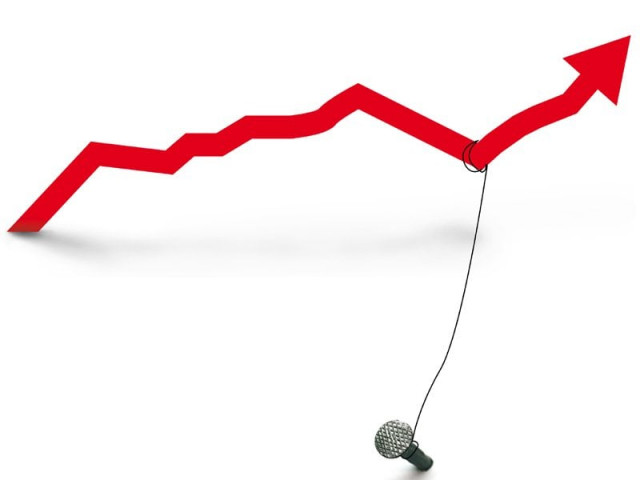Intervention required: Rampant inflation keeping basic necessities out of reach
Consumers blame traders for artificially increasing prices, hoarding.

Prices have already surged as a result of a higher taxes levied by the federal government. DESIGN: ANAM HALEEM
A strict price control mechanism has been urged by consumers to stop traders from artificially increasing prices by creating a shortage of commodities in the market.
Prices have already surged as a result of a higher taxes levied by the federal government. As the month of Ramazan approaches, prices of food and other necessities continue to soar beyond the purchasing power of the common man.

The increase in General Sales Tax (GST) to 17% along with higher withholding taxes, retail taxes and loading/un-loading taxes have been stated by traders as the reason behind the hikes.
“The arrival of Malaysian oil to Pakistan allowed vegetable oil prices to remain stable, but sugar has become more expensive,” said Mamoon Ur Rasheed, a trader. He added the price of black tea also remained unchanged.
Rasheed said wheat and flour prices had increased by more than 20% in the market, adding these commodities were in short supply due to lower yield as a result of heavy rains. “If proper steps are not taken, these products will become increasingly rare in the market. A continuous supply from Punjab is required.”
“The government’s decision to increase the price of petroleum products by Rs3.66 per litre and compressed natural gas by Rs9 per kg will also increase transportation costs,” said Khyber-Pakhtunkhwa Traders Association Secretary Shaukat Ali.
“It is not only the GST and the increase in petroleum products, but also the devaluation of the rupee against the dollar by 10% which is causing inflation,” said Ali. He added increased costs in production and transportation would directly increase the price of commodities in the market, forcing consumers to face rapid inflation.
On the other hand, consumers not only slam the government for proposing an increase in GST, but also blame traders for hoarding flour, ghee, sugar, rice, pulses and other items before the month of Ramazan. They allege the artificial shortage results in price hikes.
Zaman Khan, a grocer and farmer, told The Express Tribune the increase in grocery prices was a result of erratic changes in weather as the province received heavy rains which posed challenges for agriculturalists growing vegetables.
Moreover, the smuggling of poultry to Afghanistan despite a ban imposed by the Peshawar High Court has caused poultry products to become 30% more expensive, making them less accessible to the common man, he said. The poultry price, which stood at Rs150 per kilogramme last week, has now gone up to Rs190 to Rs200.
To control rationing, the district administration of Peshawar in a meeting last Tuesday said it would ensure price lists were adhered to. Officials said food inspectors on routine patrols would prevent any wrong doing or hoarding before Ramazan. President of the traders union, Sharafat Ali Mubarak, and others were also present at the occasion.
Published in The Express Tribune, June 29th, 2013.













COMMENTS
Comments are moderated and generally will be posted if they are on-topic and not abusive.
For more information, please see our Comments FAQ